(I)migrant: Perspectives of Minority Integration in Europe
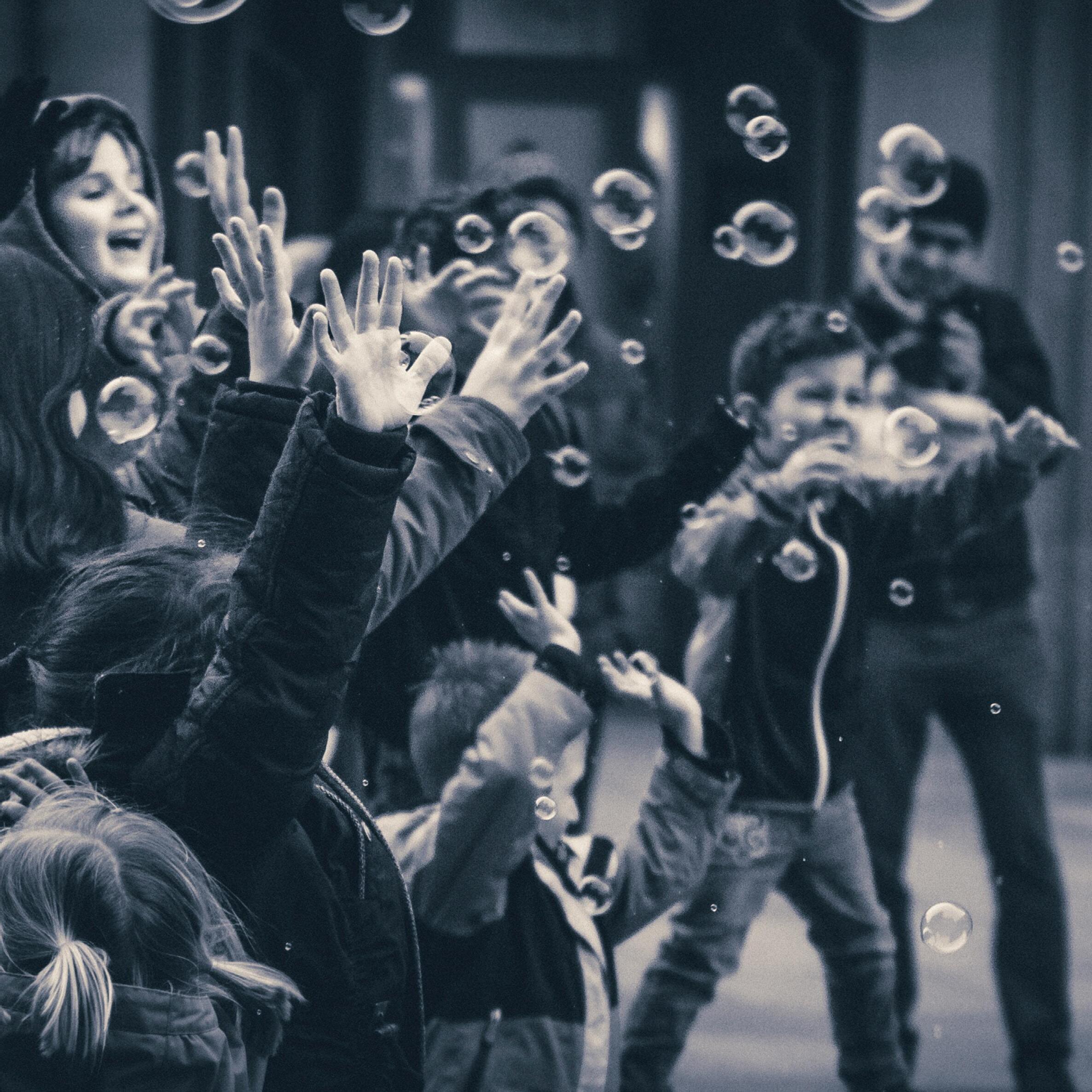
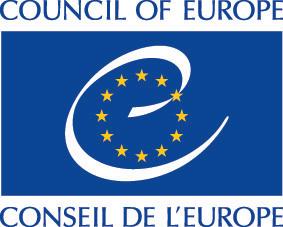

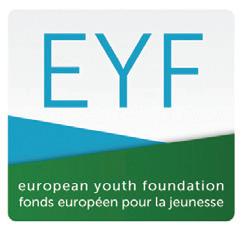
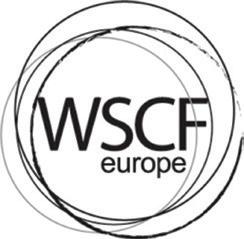
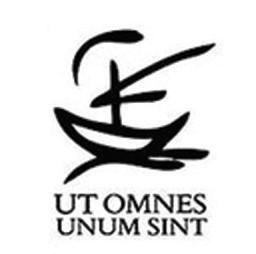
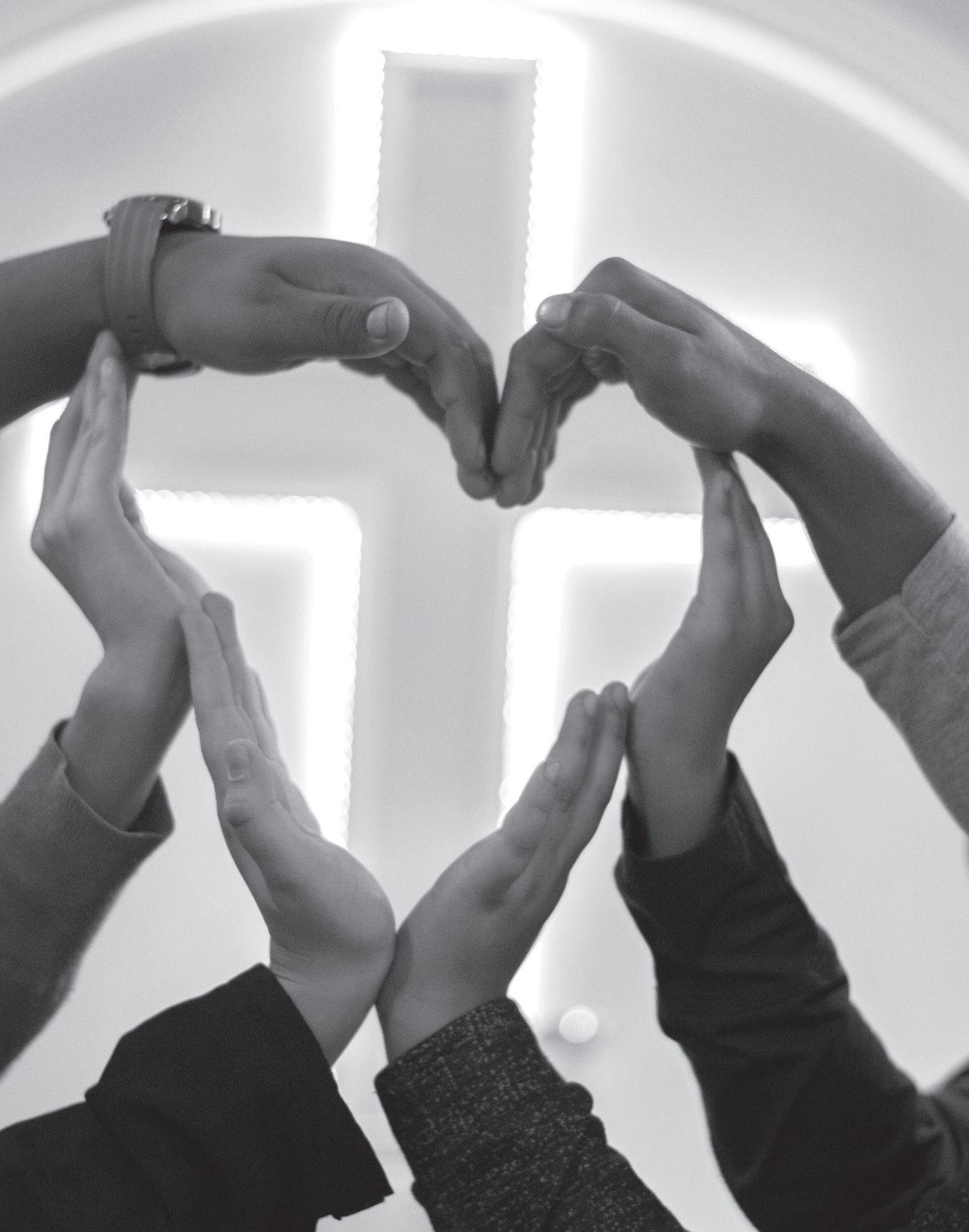








This issue of Mozaik focuses on the plight of refugees, migrants, and others who come to make Europe their new homes. We have a diverse perspective, from those who have come to settle in Europe themselves, to social workers and activists who support people who have fled conflict. Many of our contributions explain the situation in the home countries of their authors. This follows from our conference in Prosperous, Ireland, and our training session in Vilnuis, Lithuania.
Giulia’s article exposes some harrowing truths about the gendered dimension of the refugee crisis in Italy, while Angeliki explains the ancient history of this phenomenon in Greece. Naima explains the sometimes overlooked persecution of Christians in her home country of Pakistan, and Marta tells the story of a relaxing holiday for victims of violence ruined by police violence. Natalie’s account of Ukraine’s relationship with Europe reminds us that migrants are not just from outside Europe, but within as well.
Our resident theologians Hadje and Antonija give theological perspectives on the duty of Christians to strangers, evaluating Jurgen Moltmann and even Slavoj Zizek and critiquing Croatian Catholic fascists respectively. Progressive Muslim Fenna Te Berg shares a quick reflection of her time at our conference in Dublin.
Finally, we have some resources for our Federation, including workshops and training from presentors from Vilnuis, Taylor & Caitlin, and Global Federation General Secretary Necta’s reflection of the (recent) past, present and future of WSCF.
I am very proud to have worked on this issue of Mozaik with such a talented team of people. Our art editor Andrea, our illustrators Sanja & Clare, as well as the numerous contributors and photographers, who have shared their stories, experiences and expertise for our readers.
It is this in mind that I announce that this will be my last issue as Editor-in-Chief. It has been an amazing opportunity over the past years to be a part of such a diverse, interesting and historic federation, to escape from my island (and its island-mentality) and to travel all over Europe meeting people and hearing ideas.
Blessings,
James Jackson Mozaik Editor-in-Chief — james jacksonJames Jackson is a teacher, dj and editor based in Liverpool, uk. He has a Masters Degree in Religion & Political Life, and enjoys travelling, food and music.

Invisible Bonds: Trafficking of Nigerian women in Italy | Giulia Dalmonte | 7
Greek Hospitality: An Ancient History | Angelikí María Mitsaki | 12
Martyrs and Refugees: Christian Persecution in Pakistan | Naima Dominic | 17
No Rest for the Innocent: A Picnic attacked by the Police | Marta Gustavsson | 23
Emigrants Leaving Ukraine Behind | Natalie Rudnichenko | 26
The Prophetic Imagination in the Age of Refugees | Hadje Cresencio Sadje | 32
The Church’s Duty to Strangers | Antonija Potočki | 35
A Progressive Muslim’s View of wscf | Fenna Ten Berge | 39
Transition Work: Towards a Stable and Sustainable wscf | Necta Montes | 44
‘Havering’: a Creative Bible Study Exercise | Taylor Driggers | 50
How to make your SCM more Inclusive | Caitlin Wakefield | 53
invite the stranger in
For I was hungry and you gave me something to eat, I was thirsty and you gave me something to drink, I was a stranger and you invited me in, I needed clothes and you clothed me, I was sick and you looked after me, I was in prison and you came to visit me.' (Matthew 25:25-36)
do not abuse foreigners
Do not oppress a foreigner; you yourselves know how it feels to be foreigners, because you were foreigners in Egypt. (Exodus 23:9)
treat refugees the way you want to be treated
When a foreigner resides among you in your land, do not mistreat them. The foreigner residing among you must be treated as your native-born. Love them as yourself, for you were foreigners in Egypt. (Leviticus 19:33-34)
open your door to the traveler
No stranger had to spend the night in the street, for my door was always open to the traveler (Job, discussing his devotion to God) (Job 31:32)
we should love foreigners
- after all, god does too
He defends the cause of the fatherless and the widow, and loves the foreigner residing among you, giving them food and clothing. And you are to love those who are foreigners, for you yourselves were foreigners in Egypt. (Deuteronomy 10:18-19)
love your neighbor
For the entire law is fulfilled in keeping this one command: "Love your neighbor as yourself." (Galatians 5:14)
provide food for the needy and the foreigner
When you reap the harvest of your land, do not reap to the very edges of your field or gather the gleanings of your harvest. Do not go over your vineyard a second time or pick up the grapes that have fallen. Leave them for the poor and the foreigner. (Leviticus 19:9-10)
Invisible Bonds: Trafficking of Nigerian women in Italy | Giulia Dalmonte | 7
Greek Hospitality: An Ancient History | Angelikí María Mitsaki | 12
Martyrs and Refugees: Christian Persecution in Pakistan | Naima Dominic | 17
No Rest for the Innocent: A Picnic attacked by the Police | Marta Gustavsson | 23
Emigrants Leaving Ukraine Behind | Natalie Rudnichenko | 26

In Europe, the media presents migration processes as a faceless mass of people who are moving from one continent to another: we’re not used to investigating who are the individuals that make up these groups, about their stories, about their ages, nationalities and gender differences. Failing to observe that there are identity differences inside a migratory flow leads to de-humanizing migrants: in our imagination they become objects devoid of personal stories, cultures, feelings.
which would otherwise be condemned at a moral level. But instead, there are a lot of personal stories that we should listen to, often distressing ones shared by a large group of people.
From subjects they become objects, and then we can justify any kind of action,
Here, I’ll introduce the phenomenon of the international trafficking of Nigerian women for the purpose of sexual exploitation: a complex story that we are dealing still not enough.
The United Nations defines trafficking as “the recruitment, transportation, transfer, harbouring or receipt of persons, by means of the threat or use of force or other forms of coercion (…) for the purpose of exploitation. Exploitation shall include, at a minimum, the exploitation of the prostitution of others or other forms of sexual exploitation, forced labour or services, slavery or practices similar to slavery, servitude or the removal of organs”. More than 11.000 Nigerian women arrived by boat in Sicily in 2016, and more than 80 per cent of them will be trafficked into sex slavery on street corners across Italy and Europe.
The un’s International Organization for Migration says it has seen an almost 600 per cent increase in the number of potential sex trafficking victims arriving in Italy by sea over the past three years.
Therefore statistics show that the phenomenon is increasing and the age of the victims is decreasing, despite the initiatives taken at international level.
Women from Edo state in Southern Nigeria, who rarely know what they will really face in Europe, are recruited from small towns and villages by deception and false promises of a better life.
Women are sometimes fleeing from contexts of violence in their home country and they hope to find a ransom here: most of them believe that it is possible to find new opportunities to study and work legally. They face tough journeys, often crossing countries like Lybia, and when they arrive at the destinations they discover the real value of their debts to the traffickers. The debt may vary between 20.000 and
60.000 euros, and the maman (a female member of the criminal network which manages the trafficking), or her collaborator, uses threats and physical violence to pressure them into what they are suppose to do to accelerate the loan repayment: become prostitutes.
Violence and torture have an objective: the completely subjugation of the women towards the maman. these actions can last a few days but will have consequences for the rest of their lives. The abuse, however, is not only physically but also psychological, and it takes place through rituals and religious beliefs.
For part of the southern Nigerian population, “juju” (or voodoo) is the traditional religion, and in fact there is a voodoo rite that formally marks the pact between the woman and her “benefactor”.
During the rite she promises the full repayment of the debt and they speak powerful and binding words in front of Mami Wata, the equivalent of the Virgin Mary.
After, they collect in three different packages, the pieces of the woman’s nails, hair and clothing, and then are mixed together with cassava flour and rooster’s blood. The ritual make it clear the indissoluble link between the two sides, at which if the woman eventually rebelled against, will be punished by the “spirits” with diseases, madness and death. So the “juju” becomes a strong device for control, and this is one of the elements that has historically marked out Nigerian prostitution on the street compared, for instance, to that of Eastern European women. For the first one, unlike the second, a strict control on the streets is not necessary because they are already victims of a continuous psychological subjugation: this is what the Professor Francesco Carchedi, expert on women trafficking studies, calls “invischiamento psicologico” to indicate a strong mental entanglement.

The subalternity condition of women is also aggravated by blackmail, and torture or murder of the victim’s parents, who are still living in their countries of origin.
This is the complex scenario in which organizations and institutions work daily against the trafficking of Nigerian women.
Trama di Terre is one of the Italian associations which welcome, for many years now, native and migrant women in difficult situation or who have experienced violence.
From 2014 the association also accepts women refugees and asylum-seekers based on an agreement with the Prefecture of Bologna.
Consuelo Bianchetti, the centre’s operator and an anthropologist specialised in sex trafficking, tells me about the importance of maintaining a gender perspective when we tackle the issue of migration.
“The work that we are aiming for, in Trama, is the recognition of International protection starting with gendered experiences,” she tells me. “Such a perspective is necessary for detecting gender-based discrimination, violence and oppression in their country of origin.”
“If we interpret these phenomena

for example, all those disparities that do not allow a self-empowerment like the lack of access to education because they are women.”
“With those we receive, we started a journey based on relationships, a support process, but above all it’s a process of consciousness relative to the violence suffered throughout their lives.
The violent events are not immediately recognised but in the way that this woman has the possibility to focus on them, for whatever they may be terrifying, and reprocess the events at a later stage.” Social protection is necessary to provide tailored support for women, starting with the tools for rebuilding their lives, particularly concerning entry into employment, which avoids the danger of relapse in the cycle of exploitation.
This view is also shared by Vivian Wiwoloku, Nigerian Pastor in the Methodist Church of Palermo and President of the association “Il Pellegrino della Terra” that, since 1996, offering support, literacy courses and training for employment for women who are victims of trafficking.
without the focus on gender, we cannot see all the components through which discrimination arises:
“When women are ready to rebel against the traffickers they ask us - Which kind of alternative do I have? How am I supposed to maintain myself? - being able to guarantee an alternative is a major problem for us. We live in a city - Palermo - where there is a high level of unemployment and so it is becoming increasingly difficult to find a job for these women.”
In the association three former-victims have been recruited who escaped from the criminal network: their presence made the exit process easier for many other women. “This all started because during the prayer meetings
Meeting after meeting they were always more and then they started to tell us their stories. It was at that moment that I knew I had to do something.”
Vivian tells me that he has received death threats, and when I ask him if he was scared to continue after that, he says: “No, I’m not afraid. This is slavery and we cannot tolerate slavery.”
In Sicily I met with the organisers of lila, the Italian League for Action Against aids.
For several years they have been working on the streets to give medical assistance and prevention to women: “almost all the women are very young. I remember this powerful scene of a little girl that came out of a client’s car. She got into our van to drink hot tea and take a little warmth from us and after she threw herself outside, resigned, for continue her day on the street.”
Our task as Christians, and I’m sure of that, is to hold the hand of that little resigned woman and walk with her into a path of liberation from exploitation. If we turn our heads on the other way, if we pretend that nothing happening here, then we are also responsible.

Giulia Dalmonte is a Student of Cultural Anthropology and Religions and a member of the Waldensian and Methodist Church in Bologna. Her mission is to reduce any kind of gender and social inequality wherever she is.

more and more women were coming and every time they started reading the Psalms 91 and 121, asking us to praying for their protection.”
— giulia dalmonte

The “refugee crisis” is not a new phenomenon in Greek society. Geographically, it constitutes the crossroad of three continents, which has always made Greece a multicultural place. The refugees and the exiles in ancient Greece were protected from most of the laws in different polis-states and they had the right to ask for aid and help.1
In the ancient Greek pantheon Zeus was, among other things, the protector of the strangers. Zeus Xenios, Philoxenon, or Hospites, was the patron of ξενία, which could be translated as “hospitality” or “guest-friendship” and it has one very basic rule: The respect from host to guest and guest to host in reverse. In those times it was believed –in a religious way– that every stranger who was asking for hospitality could potentially be Zeus disguised. For this reason,
1 https://www.rsc.ox.ac.uk/events/exile-refuge-and-the-greek-polis-betweenjustice-and-humanity / https://www.rsc.ox.ac.uk/news/the-history-of-refuge-public-seminar-series-hilary-term-2015
the host was obliged to house the stranger and offer him or her the best food, drink, bath and any other kind of comfort for as long as he or she wanted to stay, without making questions like where are you from or how long are you planning to stay. The guest in its turn had to be courteous to the host and not be a burden. In the end of the hosting period the host must give a present to the guest and the guest had to do the same –if he/she had one–.2 When Christianity became the prevailing religion of the Roman Empire, a lot of things changed but a lot survived, not as religious signs or behaviors, but as collective traditions. This is the origin of the strong tradition of hospitality in Greece.

During medieval times, Greece was part of the Byzantine and later Ottoman Empire, which were also multinational and multireligious. The reality was different according to the social class and the religion, but generally, people used to live harmoniously all together for more than half a millennium. Nikiforos Choumnos, an important sapient, humanist and senior state officer of 14th century said: “No man will be left homeless, as long as Thessaloniki exists”3, a crucial phrase which until now reflects the overall hospitality of the Thessalonians and broader the rest of the Greeks.
The Revolutions of 1848 that caused the transition of the old empires into modern nation-states led to the rebirth of the Greek State. The main substances for its creation were language and religion. As the Ottoman Empire was getting weaker, different ethnic groups started to rebel and to demand their independence. A lot of battles took place, creating thousands of refugees.
In the end of the Greco-Turkish war (1919-1922), the Greeks of Eastern Romelia, Pontus, Asia Minor and Anatolia were
2 The Odyssey: Be our guest with Xenia - Classical Wisdom Weekly”. Classical Wisdom Weekly. Retrieved 2016-04-26. / http://classicalwisdom.com/the-odyssey-be-our-guest-with-xenia/
3 https://www.peebe.gr/istoria/o-nikiforos-choumnos-ki-emis/
forced to abandon their homes and become refugees. About 1.500.0004 people arrived as refugees to Greece. Another 50.000 Greeks from Pontus escaped to Soviet Union and 17,000 from Pontus, Asia Minor, Aegean Islands and Anatolia walked to Aleppo (Syria). Half of the people who started the route to Aleppo died of hardship or disease. When they finally arrived in Aleppo, they faced poverty.5Syria and Lebanon accepted refugees from Crete; more than
4 http://ebooks.edu.gr/modules/ebook/show.php/dsgl-C102/79/647,2410/
5 http://www.kathimerini.gr/856163/article/epikairothta/ellada/mikrasiates-prosfyges--toy-1922--sth-syria and https://damomac.wordpress.com/2014/11/25/ remembering-the-greek-refugees-in-aleppo-by-helping-the-syrian-refugees-in-athens/and http://fractalart.gr/ellines-prosfiges-syria/
40.000 Muslim Cretans moved to Syria and 7.000 to Tripoli between 1897 and 1922.6 There are still Greek-speaking villages in Syria today.7
Greece was also involved in two Balkan wars (12th of October 1912 – 30th of May 1913 and 16th of June 1913 – 18th of July 1913), in wwi (1914-1918), in the Corfu incident (1923), in the Incident at Petrich (1925), and a national conflict that almost led to a civil war between the King and the Prime Minister ( 1914-1917). This left the country in a terrible financial condition, which made the reinstatement of all these thousands of refugees very difficult. The Greek State in the beginning organized refugee camps. Afterwards, it gave them empty houses the Turks had left behind when they moved to Turkey, and fields and subsidies. The refugees were moving all around the country, trying to find a place to relocate.8
Unfortunately, a large percentage of the local population did not look kindly on the refugee wave. Discrimination was always an issue. A lot of the locals saw the refugees as another “problem” added to the ones they already had. The poor Greek lower class Greece saw its wages getting lower or lost their jobs because of the refugees’ cheaper working hands. They felt that the refugees were put in privileged positions.9
The Orthodox Church of Greece immediately started to offer food and accommodation. Shortly, it granted buildings, houses and fields to the State from its private wealth to cover the needs of the refugees and to create new minis-
6 http://apopsilive.gr/kriti/xamintie-chorio-ton-8-000-kritikon-stin-suria-kaiepistrofi-stis-rizes also the documentary of D. Manolesakis https://www.youtube. com/watch?v=Gp0aK4axxky
7 http://www.kathimerini.gr/321721/article/epikairothta/ellada/ellhnikes-dialektoi-an8ektikes-sto-xrono
8 https://kars1918.wordpress.com/2010/03/09/refugees-1922/ and http://asiaminor.ehw.gr/forms/fLemmaBodyExtended.aspx?lemmaid=3665
9 http://www.efsyn.gr/arthro/apo-tis-paragkes-sta-prosfygika and http://www. efsyn.gr/arthro/irthan-oi-prosfygges-na-paroyn-psomi-mas
tries, new public hospitals, new schools and other kind of public services. The Church also offered money to the totally empty State coffers. As time passed and refugees started to normalize, new populations were created and alongside them New Holy Metropolises (local administrative divisions of the Autocephalous Orthodox Church of Greece) were born. The Orthodox Church of Greece got bigger, its administration system was enlarged and its pastoral and spiritual work increased and got more intense and methodical.10
At this period the first dictatorships in Greece started (19221924, 1925-1926, 1927). By the end of this decade, when the political scene got more stable, Greece entered a turbulent period: its hardest dictatorship until that time (1936-1941), wwii (1941-1945), our civil war (1945-1949), and another dictatorship (1967-1974) and about fifteen years of political changeover followed, becoming member of European Union in 1981. The political scene was radically changing all over the world. During the decade of ‘90s the regime of Enver Hoxha fell and about one million Albanian migrants entered Greece. In addition, great numbers of Ex-Soviet Union citizens came seeking better life conditions. Furthermore, between 1970 and 2000, 480.000 repatriated Greeks, who had escaped to the Soviet Union mainly during the Greco-Turkish war, returned to Greece in search of a better life conditions.11 Most of these people couldn’t speak Greek or they weren’t Orthodox Christians (the majority of the Albanians for example were Muslims).12 The Greek society proved its tolerance and flexibility by accepting and integrating all these numbers of refugees and migrants among a local population that did not exceed ten million.
10 The data and the information about the contribution of the Orthodox Church of Greece are based on e-mail that most of the Metropolis have sent me from their historical archive after a personal contact I had with them.
11 http://www.mighealth.net/el/index.php/%ce%A0%ce%B1%ce%bb%ce%bb%ce%B9%ce%bd%ce%bf%cf%83%cf%84%ce%bf%cf%8D%ce%bd%cf%84%ce%B5%cf%82
12 For more detailed information see also the final report of a study conducted for ιμεπο [Migration Policy Institute], Greece by Mediterranean Migration Observatory uehr, Panteion University at 15th of November 2004
Since 2008, when the global financial crisis started, many things have changed in Greece. Unemployment rates today reach 21.2% of the total population and 43.3% among the young persons (the highest rates in Europe),13 a lot of them lost their houses. The average number of suicides in Greece has more than doubled since the beginning of the crisis14. Meanwhile, the prevalence of mental illness has increased greatly.15 16
Refugees from Syria have been trying to cross the sea between Greece and Turkey almost since 2012, but in 2014 their numbers increased rapidly and about 216.000 people crossed the Aegean Sea with 3.500 of them dying or missing. In 2015 there was the highest number of people crossing the borders Greece: about 1.015.000 people entered Greece with almost 4.000 dead or missing. At that time most of these people were still more or less free to spread into eu17. In 2016, 363.000 people crossed the sea boarders with 5.000 of them missing or dying during the attempt. The agreement
13 http://www.iefimerida.gr/news/366510/sto-212-i-anergia-stin-ellada-ton-ioynio-megalytero-pososto-stin-ee
14 http://ellinikahoaxes.gr/2017/05/26/suicide-rates-in-greece/

15 http://repository.library.teimes.gr/xmlui/handle/123456789/4140
16 http://www.enet.gr/?i=news.el.article&id=391423
17 https://www.theguardian.com/world/2016/mar/08/eu-turkey-refugee-dealqa
and Turkey halted the high numbers of the human influx and until the end of August of 2017 only 20.000 people crossed the boarders.18 Most of the refugees are men and children under the age of sixteen. Their nationalities vary.
Most of these people do not want to stay in Greece. Greece cannot handle this immense amount of people financially, and their integration seems to be quite difficult in the middle of the crisis. Also, when the refugee and migrant influx started in 2014 the Greek islands were not prepared. During all the seasons of the year, thousands of people were arriving to the coasts, almost dead, frozen from the hours or days they spent in the water, exhausted from hunger, thirst and sleep deprivation, some of them suffering from chronic diseases and others sick because of the route they followed and the hardships they faced. Pregnant women, mothers with infants, elderly, people with disabilities, and unaccompanied kids were arriving by the thousands every day in a place that they could hardly communicate with the locals because of the language and cultural distance. In front of this situation, ngos, locals, political groups and parties, schools and universities, any kind of organization with
18 https://data2.unhcr.org/en/situations/mediterranean
social and humanitarian characteristics and of course the Greek Orthodox Church rushed to offer medical care, clothing, food and accommodation.19
When the borders closed and a lot of these people got trapped inside Greece, the already hard situation became worse. The Greek State cooperated with public universities, the Red Cross, the Orthodox Church and other kind of formal organizations basically based on volunteers20 –also a lot of strange foreign organizations appeared among this mess and suddenly problems of trafficking mafias, drug and/or organs trade and jihadism appeared – and with the financial support of eu, very soon these people started to find a place to stay, a place to take a shower and to pray and monetary support for their daily needs. Priority is given to single mothers, pregnant women, families, unaccompanied kids, the elderly and disabled persons or families which include disabled persons.21
The current number of these refugees and migrants still living inside the Greek territory is about 62.000.22 Unfortunately, there are also many who are not declared. Some low rent neighborhoods have been turned into unofficial ghettos.23 The incretion of criminality and the degradation
19 http://news247.gr/eidiseis/koinonia/mia-fwtografia-ekatommuria-lekseis-anthrwpias-h-istoria-pisw-apo-to-kare-me-tis-giagiades-kai-to-prosfygopoylo.3727854.htmland https://www.youtube.com/watch?v=Hb_Hdjy4cvw or https://www.youtube.com/watch?v=szkrehVcbAs and https://www.youtube.com/ watch?v=71kl_3cpx6Q
20 http://www.huffingtonpost.com/entry/volunteers-with-greek-refugees_ us_574f54b3e4b0eb20fa0cb52c
21 http://www.cnn.gr/news/ellada/story/90866/stylianidis-avramopoylos-30000-prosfyges-se-spitia-mexri-to-telos-toy-2017
22 http://www.ekathimerini.com/220397/article/ekathimerini/news/official-data-show-refugees-migrants-in-greece-at-62407
23 http://www.newsbeast.gr/society/arthro/306920/ena-suglonistiko-odoiporiko-sta-geto-tis-proteuousas
of human life, along with the financial crisis and the endless corruption of the Greek politicians, led to the rising of the Golden Dawn, a neo-Nazi political party that entered the Greek Parliament in 2012. There are a lot of cases that Golden Dawn members attacked and killed migrants and refugees. They also have physically attacked public workers and local politicians.
Unfortunately, there is a part of Greek society, which in one way or another supports the tactics and the crimes of Golden Dawn. It is an expectable reaction considering how easy it seems for the people to oppress someone weaker than them instead of the one who directly oppresses them. It is social cannibalism.
The Bible says “For I was hungry, and you gave Me something to eat; I was thirsty, and you gave Me something to drink; I was a stranger, and you invited Me in” (Matthew 25:35). The Orthodox Church always used to march among the centuries with this concept, helping all the people who live inside the Greek territory who asked for it. It does not divide society between orthodox and not orthodox, locals or foreigners, Greeks or refugees. For the Orthodox Church it is clear in action that every person in need represents the person of Jesus Christ.
Greece is a country that faces a lot of difficulties, and has its contradictions, just like any other country in the world, but until now it hasn’t lost its human reflection. Even if there are negative or closed-minded people, the general feeling is the ancestral xenia characterized by respect and freedom.
— angelikí maría mitsakiAngelikí María Mitsaki is an orthodox theologian, who works at Muhyiddin ibn Arabi Society – Latina in Spain. Her interests are oriented towards Islamic mystical theology and religious freedom.

Pakistan, a constitutionally Islamic country, came into existence in 1947, so that Muslims could practice their faith with freedom. Pakistan has the third largest Muslim population in the world, of almost 196.7 million. However, almost 3.9 million Pakistan Christians are living as an oppressed minority.
The implementation of Shari’a Law in many areas has increased problems for Christians who are at the very lowest level of the economic and social scale. Christians are being persecuted by Islamic extremists in all areas of life such as in faith, education, work and living in society. They are treated as second-class citizens. They are called by the derogatory name of “Chura” (Cleaner).
Breaking the blasphemy law, Section 295c of the penal code – blaspheming Mohammed – is punishable by death.

Misusing this law has paralyzed minority rights, religious freedom and social justice. As well as old practices for blaming, a new tool for false blasphemy accusation has been introduced: social media.
In Muslim majority villages, the situation for Christians is worse than in the cities. Poor uneducated Christian villagers work on the farms of Muslim landlords, or in the brick kilns. In the brick kilns, they are treated like slaves. They are paid about 4 euros for making 1000 bricks. So the whole family (including children) have to work hard for more than 12 hours a day to reach the minimum target, so they can earn enough bread for twice a day. They have to work under the open sky even in extreme weather conditions. The rainy season (July and August) brings disaster to these
The blasphemy law has been used as a tool for revenge for personal disputes, harassment threats, attacks and rioting.
workers, because due to rain they cannot make bricks and they have to take loans from brick kiln owners. Every month, extra interest is also added to their debt. This way brick kiln workers are unable to return debt for their whole lives and this series of debt continues from generation to generation. These indentured workers have to obey the demands and orders of the brick kiln owners. As a way to forgive/clear the debt amount, Christians can accept Islam.
Christian girls who work as domestic workers, cleaning the houses of Muslim owners, also experiencing the same sufferings. When Christians refuse this offer, girls are sometimes raped and their families are physically tortured, or even killed. In most cases they falsely accused under the blasphemy law.
Although the constitution of Pakistan guarantees religious freedom and minority rights, Christian evangelists and preachers have still been facing persecution by fanatics. Hundreds have been tortured and killed. Christian colonies, institutes, and churches have been burnt.
In these sufferings, Pakistani Christians are strong in faith and with their testimonies they are fulfilling the Great Commission of Christ. This is a truth that all Pakistani Christians are unable to escape, but a few of them have migrated to developed countries for the purpose of safety. As they escape this traumatic discrimination, they should be considered as a high priority for integration in Europe.
A Pakistani girl, Mariam is one of those who feels safe, happy, and secure living in the Netherlands. However, there are also problems. Mariam says: “sometimes my neighbour, a local Dutch lady, is very rude with me. Most of the time she looks for an opportunity to puts me down and on minor issues she complains to the housing-authority and other neighbours. Each time the housing author-
ity finds nothing against me and try to council that lady, but she does it again. Mariam, however, remains calm.
When there is a question of safety the migrants seems to be compromising, which looks like a solution in temporary basis but this is not beneficial for the long term. In the future such compromises can be challenge for patriotism and positive role of a citizen.
Another migrant, Rani, has not had a positive experience. She said, “In Pakistan I studied up to the 7th grade only. I can read and write our national language Urdu but I am unable to read and write English. Since I migrated to the Netherlands, following the rules and regulation for local integration I have to learn Dutch. This was impossible for me. For more than three years I attended language learning school, but I could not learn even the basics and I failed the exams. Because of my lack of ability for the local language I still feel that I am not a part of this society. I feel like an alien.
There should be another alternate solution that there should be native language teacher. So in a particular group
“I let go. These issues and problems are nothing compared to the difficulties and sufferings of persecution in Pakistan”.
The language policies need to be reviewed. This will be beneficial for all less educated migrants also.
the teaching mode of language should be translated from native language (Urdu) to local language (Dutch).
Whereas few migrants are very happy with the language learning opportunities offered by volunteers and available in local libraries (twice a week). Without the distinction of status (legal or illegal) they welcome all the individuals.

Vluchtelingenwerk Nederland is one of the active organizations, providing the platform for integration as they help to approach all the positive opportunities for migrants to be dependent in their lives such as language, volunteer work, job market and many more.
Esther van de Pol, a social worker with vwn Dronten is mostly working with Pakistani clients. She reflected on this issue, “Migrants are always grateful for anything they get, because they are safe in this country, which is the priority for anyone in life. Sometime it is not acceptable to locals that the migrants get benefits and houses. It seems unfair when a refugee is prioritized, while a regular candidate must have to wait for years to be eligibile for housing. The priority needs should be properly communicated by the municipality. In every city each municipality has different policies in terms of integration as well. So in most cases people compare the facilities they are provided with, which leads to fluctuation in adjustment.”
Jacob, the manager of vwn-Dronten, also feels that there are loop-areas for the integration policies of migrants. Recently he is involved with a project from local municipality for the improvement of integration strategies and action plans. Next week, he is inviting few local migrants as a “focus group” to share their experience and to give input, so this could be suggested to higher officials.
One anonymous Pakistani Christian migrant shared her positive experience. “I was having a complicated pregnancy. My baby’s life was at risk. For more than one month I was hospitalized (far from my house). Without my husband it was even more difficult to manage. I was feeling lonely and depressed. In this critical time Shekinah church members regularly visited me and prayed. By the grace of God I delivered a normal healthy baby. I am so grateful for another local church in Swifterbant as they took care of me and gifted me with some household things. These churches showed their love and a Christian approach to integration.
Out of many churches, and organizations, Shekinah Church is one that must be considered a role-Model for the integration of minorities, because Christ is love, and love must be shared. Shekinah church is near to an asylum centre in Dronten. This church is very activate for supporting migrants from Pakistan, Iran, Afghanistan and many other nations, and welcomes them with open arms, especially persecuted Christians.

How do they do this? A team is assigned for taking care of refugee migrants (Christians and converts). Once a week they arrange prayer meeting asylum seeker centre. Every one (from any nation or region) is welcome for prayer. On Sunday there is free travel arrangement.
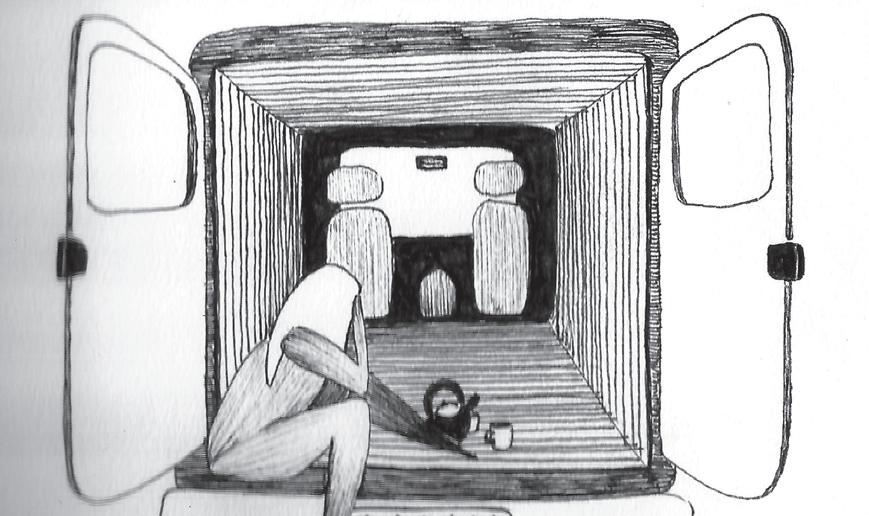
such as Farsi. On Wednesday there are bible teachings and dinner for the refugees. The church members take care with some practical things such as clothing, temporary shelter (if needed) and language learning sessions as well. The church management is open for arranging volunteer positions (if requested) and counselling sessions for the development of career, education, personal and family life. This is really Integration in Action.
From the centuries, the church had been considered and used as a main hub for religious and social activities. In this modern era, when migration is at a peak. This practice should be re-revolutionized using churches as a hub for the integration of minorities.
During the church prayer service, there are special headphones for the translation from Dutch to English and other languages
— naima dominic

Where do churches have their loyalty? The answer – to the cross – should be obvious. A Church, an entity of people belonging to, confessing, searching to follow Christ, should have its allegiance clear.
Society and state can relate in various ways to this. They might follow, they might allow or they might oppose – but they can’t change the way the gospel calls us to live. Surely, sometimes they also try to change and incorporate the Church into their own views – this I believe we must resist.
But it does hurt when allowance is turned into opposition. In Church of Sweden and the congregations of Malmö we experienced this during the end of this summer. A few families, tied to some of our churches, went for a weekend's camp organized by the Church. They went for recreation and rest, much needed since, being undocumented refugees, they have so much stress and so few safe spaces.
Unfortunately, what was meant to be a moment to breathe, became quite the opposite as the camp was surrounded by border police. 30 people, policemen and translators, accompanied by dogs, detained the families in what has been described as a much unsettling manner. The families were split and the children were scared.
So much can be said about this, about the asylum laws and the situation for the undocumented, but there is also a larger question that I believe all Christians throughout Europe must relate to. What happens when our states interferes with the ngo’s and churches’ humanitarian and social work? How do we keep up showing love, act for the least of us, guard the immigrants, when we lose the trust and allowance of our states? Already our friends ask if it’s safe to come to services, to gather for Bible studies. ‘There are no safe zones’ say the leaders of our border police.
Maybe this is just an isolated event. Maybe the worries we have this autumn will soon prove unnecessary, maybe soon the safe spaces will be taken back. But maybe the situation really has changed for us? The way of the Cross may prove harder but hopefully our faith will prevail.
— marta gustavsson
Marta Gustavsson is a pastor in Church of Sweden, serving in Malmö. She has been a board member of scm Sweden during which time her passion for community, compassion and justice grew strong.


To speak honestly, obtaining a visa free agreement with Europe was inspiring news for many Ukrainians. Future journeys, business trips, and holidays in Europe long sounded like a prophecy from the mouth of politicians. It was a real freedom from collecting piles of documents, work letters, bank accounts recipes to prove, after long hours in a queue, you can obtain a Schengen visa.
I attended a wcsf conference in the autumn of 2012 and each trip was the problem for me because of the need to obtain a visa. Deeply inside I felt confused, communicating and making friends with an international and friendly group. Why couldn’t I, a journalist of the international airlines corporate magazine, with a PhD prolong my trip to Europe or visit my new friends freely?
But of course, problems of Ukraine’s relations with the eu lie far behind free travel. They are mainly about so-called
“European values” (freedoms, rule of law, economic stability) as absolute values and link to higher living standards and overwhelming desire to try their luck in Europe by Ukrainian migrant workers. Especially nowadays, when Euro 1 equals uah 30.This is almost three times more than before autumn of 2013 when political events of Maidan started. In results, hundreds of thousands of middle class Ukrainians became three times poorer despite obtaining new freedoms after President Yanukovich’s regime failed. And in our consumeristic society this matters.
On August 24 we celebrated the 26th anniversary of the Independence Day of Ukraine and we were informed that from June 11, the right to visa-free travel had already been used by 200,000 Ukrainians. It is noted that 90,000 Ukrainians crossed the border with Poland and Hungary. Since the start of the visa-free agreement, only a bit more than 60 Ukrainians were denied entry. The main reasons for the refusal to enter were the exceeding of the terms of stay in the eu during the previous trips and the absence of documents confirming the purpose and conditions of stay in the countries of the European Union.
So we see that visiting is not massive and the main concern of the current Ukrainian authority is not to lose the best workforce and brains – people who would go to Europe for a better life.


“Citizens of Ukraine leave the country, because in Ukraine there is no rule of law.” This was said by the mayor of the most successful western Ukrainian city Lviv, Andriy Sadovy, on the air on NewsOne. Among the main obstacles to normal life in Ukraine, the mayor named a high level of corruption, especially in the activity of courts and prosecutors’ offices. This is not to mention a still ongoing actual war in the East of Ukraine which made many Ukrainians internally displaced people.
“Recently I spoke with the Mayor of Wroclaw, and he said that there were 100,000 Ukrainians - and that’s more than 12% of the inhabitants of Wroclaw.” Generally in Poland there are about 7 million of them. Do you know what saves Lviv? We, in principle, have a high level of comfort. Thousands of people work in the it sphere where the average salary is about $ 2,000”.
But only the it people and top managers are so lucky in Ukraine. The rest live on a meager salary of an average of 100-200 Euro – too little by European standards. And the current young and middle-aged generation doesn’t want to wait for the future glory of Ukraine like that which their parents lived in.
Czech Republic. The creative class are heading to London, it people to Germany, and many middle class Ukrainians simply became downshifters somewhere in Bali, India, Thailand – near the ocean, beach and sun. And this make story of migration a bit more optimistic, at least for some of my compatriots.
But in a sad story of empty political talks about European integration by Ukraine’s politicians and a high level of corruption and a very lavish life of the top officials (which they don’t bother themselves to hide) mass work migration is one important point. Nowadays migration is a global trend. Not all Ukrainians go as low paid workers to Poland or the
 — natalie rudnichenko
— natalie rudnichenko
Natalie Rudnichenko, PhD in General Linguistics, journalist. Lives and works in Kyiv, Ukraine. Several times participant in wscf events

